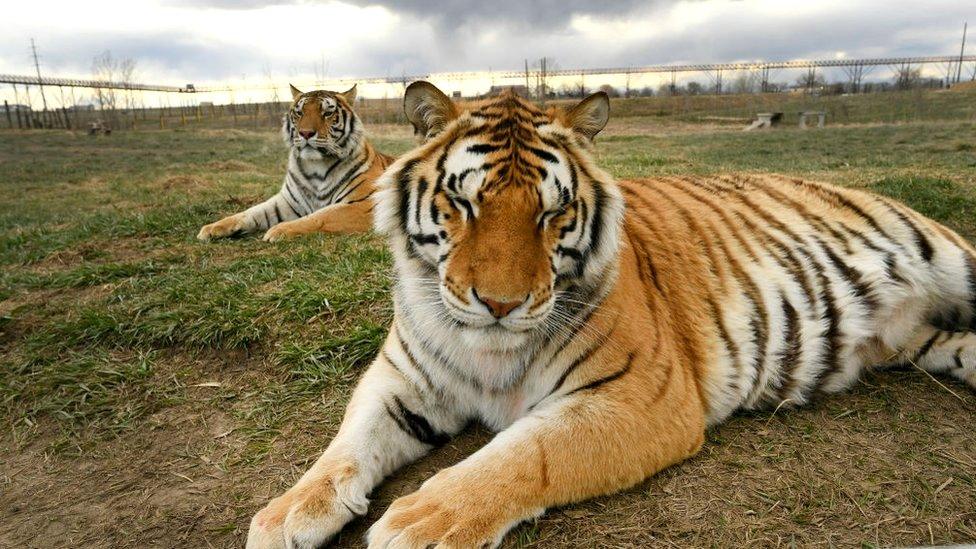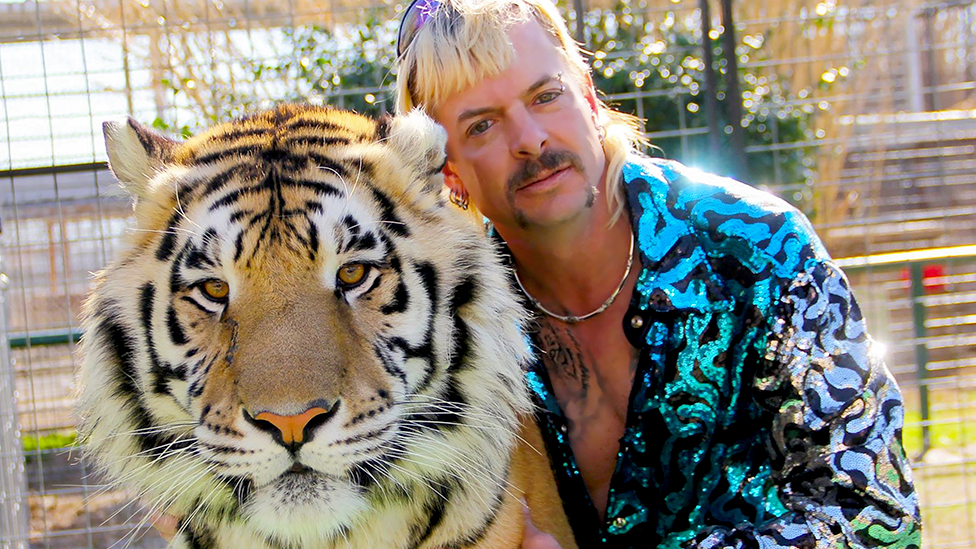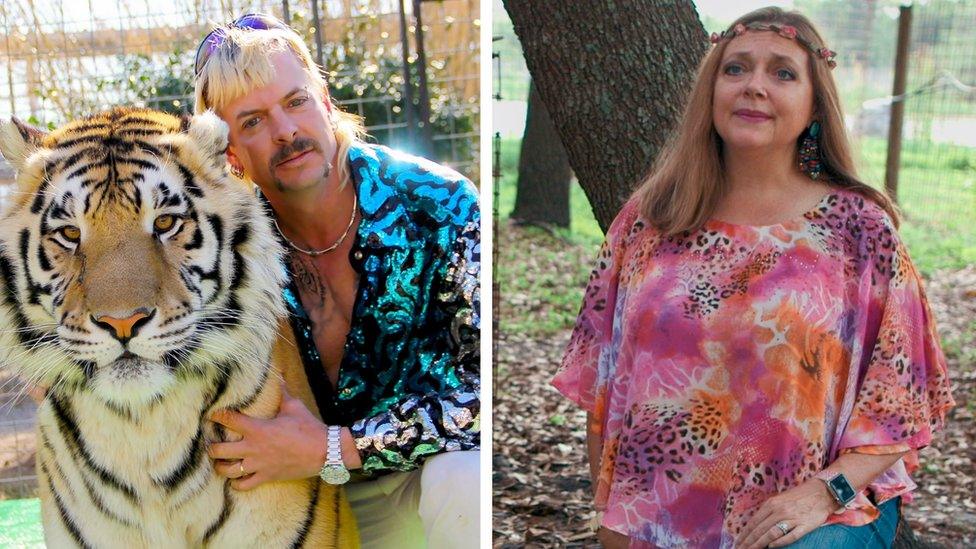Big cats: US senators seek ban on private ownership of lions and tigers
- Published

Two tiger brothers rescued from a zoo featured in the Netflix documentary series Tiger King
US Senate lawmakers are proposing to ban private ownership of big cats such as lions and tigers in the wake of the Netflix documentary series Tiger King.
Support for the Big Cat Public Safety Act, which would also ban public contact with big cat cubs, was announced by four bipartisan senators.
The US has more captive tigers than there are wild ones around the world.
The Animal Welfare Institute says the Tiger King series helped to highlight "the exploitation of captive big cats".
In December, the Big Cat Public Safety Act passed in the US House of Representatives by a strong majority of 272 to 114. But the bill still needs to pass by a majority in a Senate vote to become law.
On Monday, Democratic Senator Richard Blumenthal said he supported the bill, along with three other senators; fellow Democrat Tom Carper, and Republican senators Susan Collins and Richard Burr.
"I'm thankful for the groundswell of public support for this bill and look forward to working with my colleagues from both sides of the aisle to ensure it becomes law," he tweeted, along with a press release published on the US-based Animal Welfare Institute website.
Allow X content?
This article contains content provided by X. We ask for your permission before anything is loaded, as they may be using cookies and other technologies. You may want to read X’s cookie policy, external and privacy policy, external before accepting. To view this content choose ‘accept and continue’.

"This bipartisan measure would help stop exploitation of big cats like tigers and lions, and reduce safety risks," Mr Blumenthal said.
"My Big Cat Public Safety Act would prohibit private ownership of these beautiful but powerful predators, which deserve to live in the wild. They should never be pets, even as cubs, kept in captivity dangerously for entertainment."
If the bill passes the Senate, the ownership ban would apply to lions, tigers, leopards, cheetahs, jaguars, cougars, or any hybrid of these species kept as pets. Sanctuaries and zoos, for example, would be exempt.
A date for the Senate vote has not yet been decided.
According to estimates from conservationists, as many as 7,000 tigers are living in the US either in zoos or privately owned - nearly double the estimated 3,890 tigers still prowling in the wild around the world.
The Tiger King documentary series, which became a huge hit on Netflix last year, tells of the colourful life of Joe Exotic as the owner of a zoo in the US state of Oklahoma.
Exotic, real name Joseph Maldonado-Passage, is currently serving a 22-year sentence for his involvement in a contract killing plot and animal abuse.

You may also be interested in:
Lions and tigers escape circus life for vast new home
- Published19 January 2021

- Published2 June 2020
